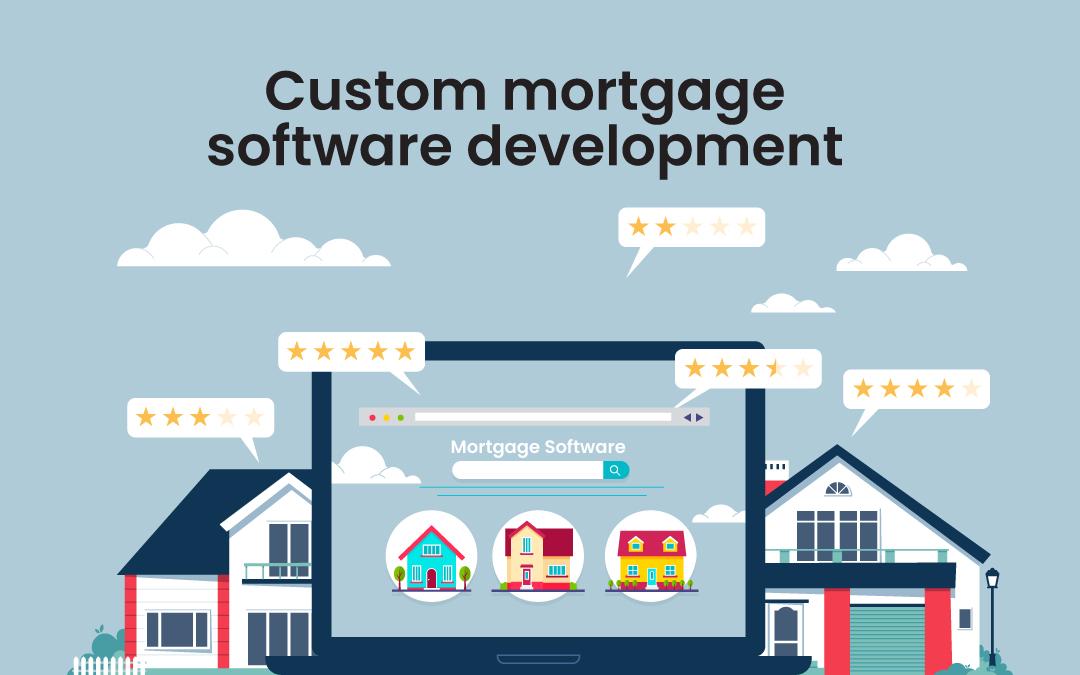
Discover the world of mortgage software development. Learn how custom solutions transform the mortgage industry by enhancing efficiency, security, and customer satisfaction.
Transforming the Mortgage Industry
In today’s fast-paced digital world, the mortgage industry is experiencing a significant shift. As traditional methods of processing mortgage applications become outdated, the need for advanced technological solutions has never been greater. Enter mortgage software development, a game-changer for financial institutions looking to streamline operations, reduce errors, and improve customer experiences.
But what exactly is mortgage software development? In this article, we’ll delve into the fundamentals of this innovative field, explore its benefits, and discuss how companies like Jappware are leading the way in creating customized mortgage software solutions.
What is Mortgage Software Development? What should you start with?
Mortgage software development refers to the process of creating, developing, and delivering software solutions tailored specifically to the mortgage industry. These technologies automate and optimize several aspects of mortgage lending, including application processing, underwriting, and loan servicing.
Key Features of Mortgage Software
A range of features that cater to the particular requirements of the mortgage business are commonly found in mortgage software.
- Loan Origination Systems (LOS): By automating the loan application process, these systems facilitate lenders' effective management and processing of loan applications.
- Automated Underwriting Systems (AUS): These systems expedite decision-making by evaluating loan applications using predetermined criteria.
- Document Management: By enabling safe document management, retrieval, and storage, mortgage software eliminates the need for paper documentation.
- Management of Compliance: One of the biggest challenges in the mortgage sector is maintaining compliance with constantly evolving rules. Mortgage software automates regulatory updates and checks, assisting banks in maintaining compliance.

The Role of Customization
Developing specialized solutions to match the unique requirements of a financial institution is one of the most significant benefits of mortgage software development. Instead of off-the-shelf software, custom mortgage software can fit specific business processes, interact easily with current systems, and offer borrowers and lenders a user-friendly interface.
The Benefits of Mortgage Software Development
Many advantages to mortgage software development can change how financial organizations function. A closer look at a few of the main benefits is provided below:
- Increased Efficiency and Productivity: The entire lending process is streamlined by mortgage software, which saves time and effort when processing loan applications. Automating data entry, document management, and compliance checks frees up lenders' time to concentrate on strategic endeavors like client relationship building and business growth.
- Enhanced Accuracy and Reduced Errors: Errors frequently occur in manual procedures, which can cause expensive delays and compliance problems. Mortgage software reduces these risks by automating data entry and validation and guaranteeing that all information is correct and current. This lowers the possibility of mistakes and improves the loan process's general dependability.
- Improved Customer Experience: Providing a smooth and convenient client experience is essential in today's competitive industry. With its user-friendly interface, mortgage software helps borrowers apply for loans, gives them real-time updates, and makes the process go smoothly. This raises the chance of recurring business while also improving client satisfaction.
- Better Compliance Management: For mortgage lenders, adhering to regulatory standards is a significant concern. Mortgage software ensures that all procedures follow the most recent rules, generates reports, and automates compliance checks to help institutions meet these needs. This lowers the possibility of fines and improves the standing of the organization.
- Scalability for Growing Businesses: Financial institutions have more complex needs as they expand. Because mortgage software is so scalable, organizations may grow with accuracy and efficiency. Mortgage software can be tailored to fit the changing requirements of lenders, whether they are aiming to expand into new markets or offer new loan products.
Challenges in Mortgage Software Development
Mortgage software development has many advantages, but developing and putting these solutions into practice is only difficult. The following are some of the main obstacles that financial institutions and developers may encounter:
- Integration with Legacy Systems: Many financial organizations still use antiquated systems that might not work with contemporary mortgage software. It can be challenging to integrate new software with these old systems; careful preparation and execution are needed to guarantee a smooth transition.
- Data Security and Privacy: Data security is of utmost importance since mortgage software manages sensitive consumer information. Strong security measures, such as encryption and access controls, must be put in place by developers to guard against data breaches and guarantee that privacy laws are followed.
- Keeping Up with Regulatory Changes: The mortgage market is heavily regulated, and new laws and regulations are added regularly. To keep up with these developments, mortgage software must be updated frequently, which can be difficult and time-consuming.
- Cost of Development and Implementation: Developing and implementing specialized mortgage software can be expensive, especially for smaller financial institutions. Nonetheless, the long-term advantages—like higher productivity and fewer mistakes—often surpass the upfront costs.
The Future of Mortgage Software Development
The future of mortgage software development is bright as technology keeps advancing. Blockchain and other emerging technologies, like artificial intelligence (AI), have the potential to completely transform the mortgage market by providing lenders and borrowers with even more sophisticated tools.
Artificial Intelligence and Machine Learning
Large-scale data analysis is possible with AI and machine learning algorithms, improving loan choices' accuracy. These technologies can be applied to mortgage software to evaluate credit risk, identify fraud, and customize loan products according to the unique profiles of individual borrowers.
Blockchain Technology
Blockchain provides a transparent and safe means of managing contracts and transactions. Blockchain can be used to establish intelligent contracts in the mortgage business that, when specific criteria are satisfied, will execute automatically. This would increase efficiency and decrease the need for intermediaries.
Mobile Mortgage Solutions
The need for mobile mortgage solutions is growing as more customers use their cell phones for financial services. Mobile platforms are becoming a more critical emphasis for mortgage software development, giving borrowers the ease of applying for loans and monitoring their accounts whenever and wherever they choose.
The Competitive Edge of Mortgage Software
Finally, mortgage software development is essential for financial institutions trying to maintain their competitiveness in a market that is evolving quickly. Mortgage software gives lenders the resources they need to be successful by streamlining procedures, increasing accuracy, and enhancing client interactions.
Share this post
Leave a comment
All comments are moderated. Spammy and bot submitted comments are deleted. Please submit the comments that are helpful to others, and we'll approve your comments. A comment that includes outbound link will only be approved if the content is relevant to the topic, and has some value to our readers.

Comments (0)
No comment